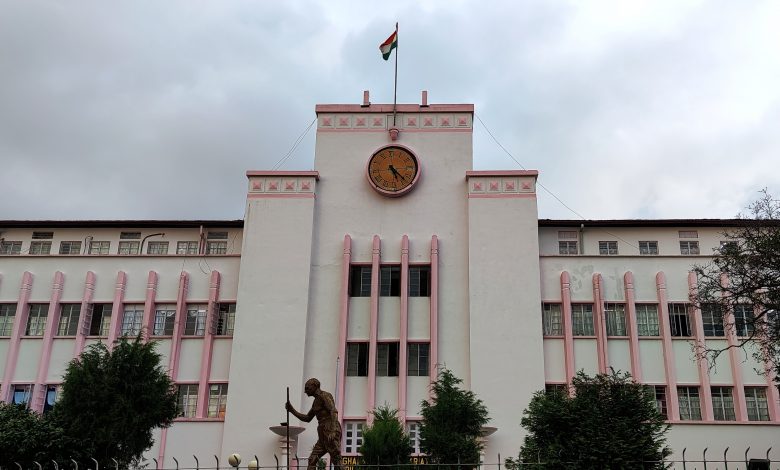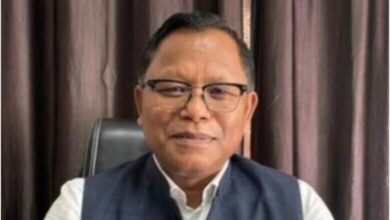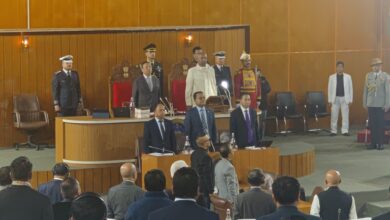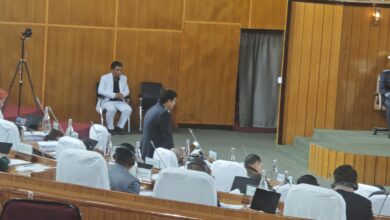
Shillong, June 17: Thma U Rangli-Juki (TUR) has provided suggestions to the committee reviewing the reservation policy stressing that the policy should include an innovative Deprivation Point System within the reservation policy. ‘The deprivation and representation in Meghalaya is not only community based but also has a geographical and economic basis. The present reservation system indicates people who, although belonging to the indigenous communities, are also based in developed districts and belong to upper classes of these communities who have gone to expensive private schools and colleges both in the state and outside the state, TUR leader Angela Rangad said.
“If the reservation policy has to have more egalitarian outcomes the various indicators of deprivation of individuals have to be taken into account. TUR proposed that the ‘Deprivation Point System’ should be adopted with the reservation policy. This deprivation point would be based on both the individual’s family background as well as where she is from and where she has been educated? These deprivation points can be calculated every five years based on district wise developmental data. So, for example, a first generation girl learner, whose parents are not government servants and who is from an underdeveloped district and has studied in local vernacular school and college would get certain points that shall elevate her chances of getting the job compared to someone who may belong to her tribe but is a child of a Grade A officer and has studied in Shillong in expensive private school. The exercise of deprivation points within the existing reservation quota can be easily implemented.
The recent demands to review (and change) Meghalaya Reservation Policy has
opened up a pandora’s box of grievances. On one side are some who see the review
as a zero-sum game of communities, where one community’s gain would be another
community’s loss. On the other hand are those who don’t want to upset the status
quo because the tenuous and fragile community relations that make up Meghalaya
are threatened.
“TUR believes that in a democracy, public policy should not be a zero-sum game or
jockeying for community pride, especially when it comes to Reservation Policy /
Affirmative Action. Affirmative action constitutionally is not about numerical
representation but about transcending historic power imbalances and deprivation so
as to have a more egalitarian future. The privileged (numerical or otherwise) have
always found affirmative action problematic because they believe in immutability of
hierarchies and privileges”, TUR leader said. They see society as a place where only the meritorious powerful survive. STs and SCs always faced this scorn of reservation and this similar attitude should not be encouraged in Meghalaya between the communities, she said.
“In a democracy it is important to have public policy to people’s scrutiny. But this
people’s scrutiny cannot be based on mere subjective perception or majoritarian
emotional impulses but has to be evidence based and constitutionally tenable and
be ready to acknowledge conflicting responses in the society. Scrutiny has to respect historical context as well as historical compact between the diverse groups of
people that constitute the citizenry, Rangad said.
TUR said it believes that a democratic state ought to privilege its weakest and most
deprived and our suggestions regarding Meghalaya Reservation Policy is not about
reworking of the 40/40/5 formula but about the outcomes and realities of functioning of the reservation policy after fifty years of Meghalaya’s statehood. “We also think that without historically contextualising the Meghalaya Reservation Policy 1972, we would not be able to understand and think through various claims and counterclaims about it. Objectivity demands that any claim and counterclaim about the policy should be substantiated with evidence, both in terms of data and its legal validity”,she said.
“Our comments/suggestions are therefore not about making demands for change or for a status quo but about the methodology and evidence available for review as well as to look at some newer ideas to deepen affirmative action policies in the state so as to create a future for Meghalaya that is egalitarian and empathetic”, Rangad said.
TUR wants a Meghalaya where communities and individuals are not engaged in the
winner and loser contest but are working together for a peaceful, just and developed
state.





